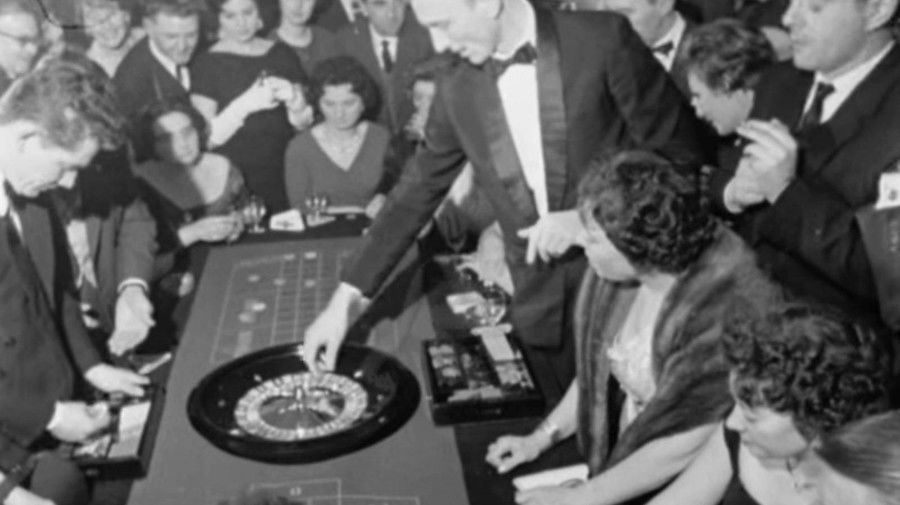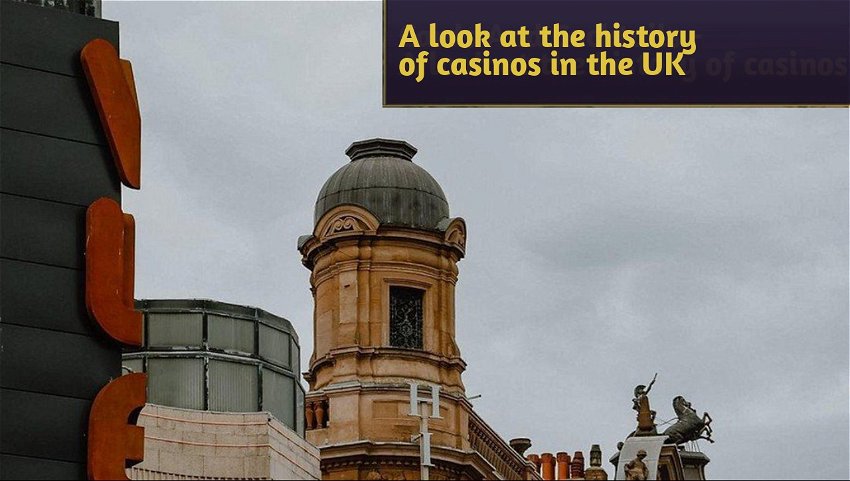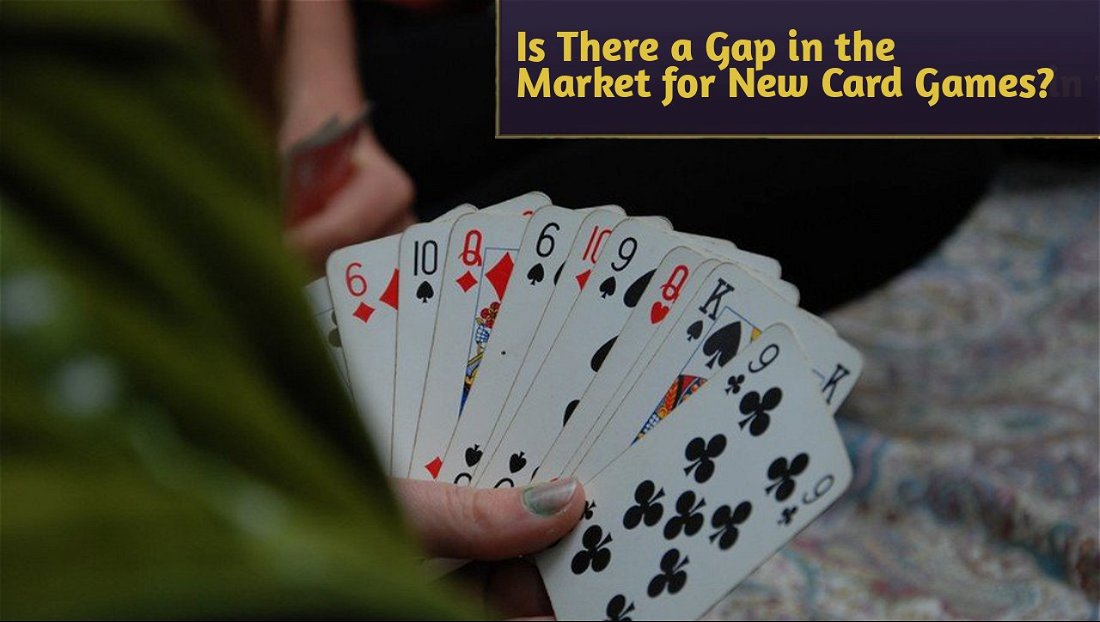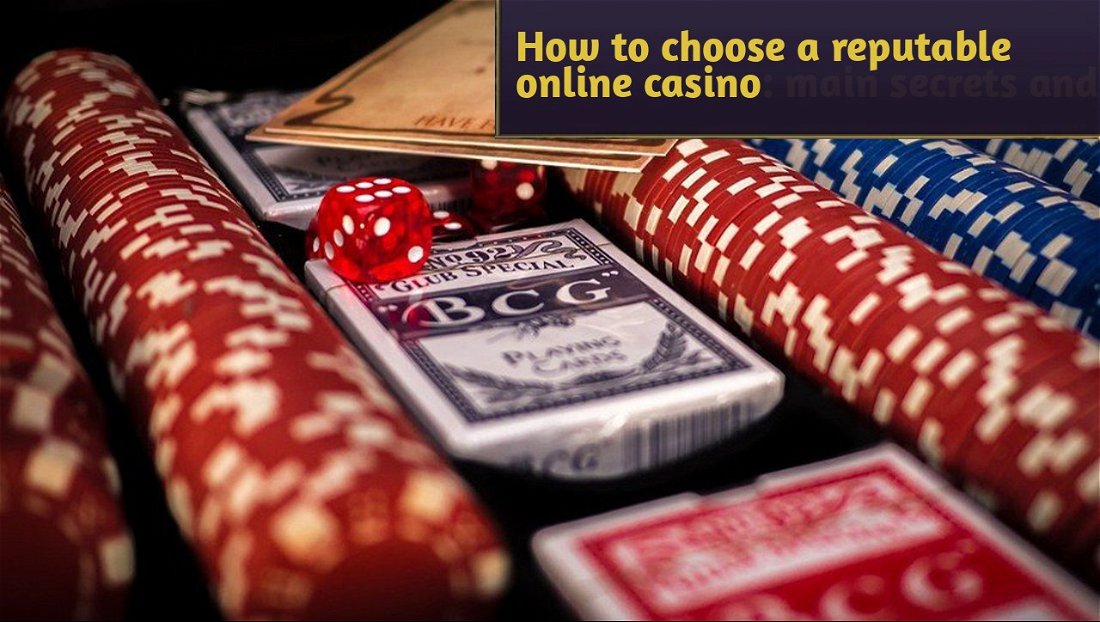There are now around 144 casinos in Great Britain ranging from the down at heel establishments to those in more salubrious settings. Glamorous venues have an enduring appeal to those with wealth as not just somewhere to gamble but a place in which to eat, drink and socialise. It will come as little surprise that the first casinos in the UK were based in London and, even today, many gamblers drop considerable amounts of money at these casinos every year. In this article, we’re looking at the history of casinos in the UK.
Big money in the Big Smoke

As you would probably have guessed, the UK’s first casino appeared in London, catering to some of the wealthiest people in Great Britain. Crockfords opened the doors to its casino in the West End’s Curzon Street in 1828 to great excitement. Not only was it the first venue of its kind in the capital but it also had the blessing and support of the Duke of Wellington, giving it an elevated status in the eyes of its patrons. Back then the casino was open only to members - and only men were allowed to join. In 2023, Crockfords Casino still holds pride of place in Curzon Street and offers a range of games including roulette, baccarat, blackjack and poker within a luxurious environment featuring high stakes rooms as well as private gaming areas and a penthouse suite.
Winning in Wales

While London led the way with Crockfords Casino, other parts of the UK were quick to follow and they soon began to pop up in some of the nation’s other major cities. Although gaming clubs became incredibly popular in the 19th century in the UK, casinos would not actually become a constitutionally legal entity until 1960. This new legislation would ultimately change the face of gambling, making it more accessible to the general public rather than just the wealthy. Following the casino legislation, the Casino Club Port Talbot burst onto the scene, changing the face of casinos forever. The venue in Wales featured not just gaming tables and slot machines but also a restaurant, a bar and even a dance floor. This immediately began a trend for casinos as a place of leisure rather than just somewhere to enjoy a game or two and this format is now pretty much standard for all major UK casinos.
Gangsters and gambling
Ad
While high end casinos in the UK continued to appeal to the wealthy, there was the occasional reputational dip over the years. When notorious East End gangster, Ronnie and Reggie Kray bought Esmeralda's Barn in 1960 and turned it into a gaming club which hosted guests such as Francis Bacon and Lucien Freud, there were those who feared that casinos across the country would descend into pits of crime and debauchery with many people choosing to stay away for fear of becoming entangled in illegal activities. Thankfully, the Krays’ reign in the gambling world was relatively short lived (although their other, more violent pursuits would continue, leading to both men dying in prison) and casinos would once again be a social hub for the masses.
A corporate affair
While the first casinos in the UK were owned by individuals, this would change over the decades and, today, 75% of the casinos in Great Britain are owned by just two gambling giants and we’ll take a look at these in this section:
The Genting Group
Founded in 1965 in Malaysia, the Genting Group owns 34 casinos across the UK - including the legendary Crockfords Casino. Known for their opulence and exclusivity, casinos under the Genting Group are extremely popular with the UK’s high rollers. In 2023, the company is said to be worth a cool £465 million.
The Grosvenor Casinos
Owned by the Rank Group, Grosvenor Casinos have dominated the Uk gambling scene since 2007 and, since acquiring Gala Casinos for £179 million, the company now has 54 casinos dotted across Great Britain. The Grosvenor Casinos Group is currently worth £58,738,000.00.
Online gambling sends casinos off track
Ad
Casinos in the UK have enjoyed a pretty good run but in 1994, the first real threat to the industry arrived in the form of the first online casino run by Microgaming. While this concerned many casino owners, the internet as a household amenity was still in its infancy and this new form of gambling was slow in gaining popularity. Of course all of that would change and now, in 2023, there are around 175 online casinos operating across the four nations. While online casinos enjoyed a surge in popularity in the UK during the COVID-19 pandemic, casino owners needn’t have worried too much as fans flocked back to their faourite real life venues once life returned to normal - with many stating that online gambling simply doesn’t offer the same social experience as the real thing.
Instead, many bricks and mortar casinos are choosing to have the best of both worlds by running their venues for on-site customers but also adding an online option for those who prefer to gamble in their PJs at home. This can also be a great way of reaching customers overseas or those who don’t live close enough to the casino for regular visits.
Strong and steady
The popularity of real life casinos in the UK can be measured by the way that the industry has weathered a couple of recent storms. In 2007, the UK introduced legislation which prohibited smoking within public buildings. This was a considerable issue for the casino industry whose prime objective is to keep gamblers inside the building for as long as possible. Following the legislation, many casino owners went to considerable expense to create special smoking areas in their venues. The second storm was, of course, the global pandemic which saw businesses, including casinos, being forced to close their doors for several months. Despite all of this, thousands of Brits continue to visit casinos on a regular basis.
If you want to play safe and responsible yourself, check real money online casinos.
Don’t get carried away into debt
While playing games within the glitz and glamour of a city casino can be fun - and even lucrative - it's extremely important to remember that this is still gambling and so caution should be exercised as it can be easy to get carried away by the excitement of the moment. There are currently around 168,149 problem gamblers in the UK - many of whom are suffering from serious addictions which can ultimately have some devastating consequences including debt, unemployment, a spiral into crime and even, sadly, in some circumstances, suicide. Although there’s nothing wrong with occasionally trying your look at the tables, you should always gamble responsibly - and never ever gamble more than you can afford to lose.
Should you or somebody you know feel that gambling is taking over your life, it's important to get help as soon as possible through your GP, your local council or a registered gambling charity such as GambleAware.
Ad





— commentaires
0Soyez le premier à commenter